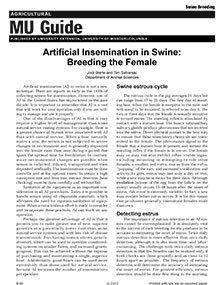

Artificial Insemination in Swine: Breeding the Female
Reviewed
The use of artificial insemination in the U.S has skyrocketed. Visit our website to view our Artificial Insemination in Swine: Breeding the Female article.
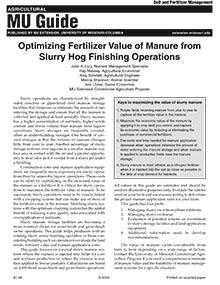
Optimizing Fertilizer Value of Manure from Slurry Hog Finishing Operations
Reviewed
See recommendations for applying manure on corn, soybeans or fescue. Learn how to maximize slurry manure’s value and assess its storage and application cost.
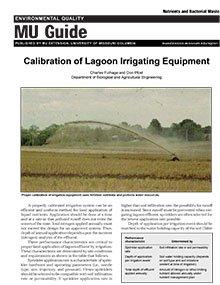
Calibration of Lagoon Irrigating Equipment
Reviewed
This publication provides guidelines for calibrating lagoon irrigation systems to ensure efficient nutrient application and prevent runoff.
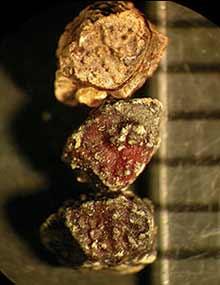
Missouri Weed Seeds, Page 23
Reviewed
Most of the plants from Euphorbiaceae (Spurge family) present in Missouri are spurges, which include about 20 different species.
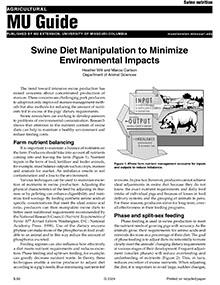
Swine Diet Manipulation to Minimize Environmental Impacts
Reviewed
Guidance on adjusting swine diets—phase feeding, enzyme use, synthetic amino acids—to reduce nutrient waste and lower environmental impacts.
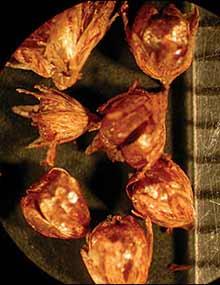
Missouri Weed Seeds, Page 26
Reviewed
More than 20 species of Juncaceae (Rush family) occur in Missouri. Rushes are not true grasses or sedges. Determining individual species of rushes by plant characteristics is nearly impossible.
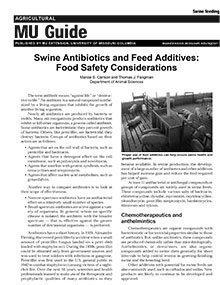
Antibiotics and Other Additives for Swine: Food Safety Considerations
Reviewed
Learn about antibiotics and additives in swine production, their benefits for growth and feed efficiency, and best practices for safe and effective use.
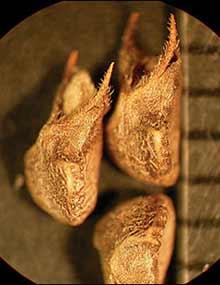
Missouri Weed Seeds, Page 29
Reviewed
Several species of Malvaceae (Mallow family) are among the most common broadleaf weeds in Missouri. These include velvetleaf and prickly sida. Cotton is also a member of this family.
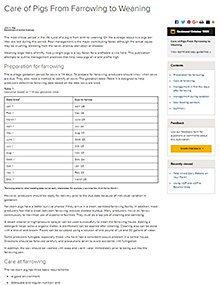
Care of Pigs From Farrowing to Weaning
Reviewed
The most critical period in the life cycle of a pig is from birth to weaning. Visit our website to learn about the Care of Pigs From Farrowing to Weaning.
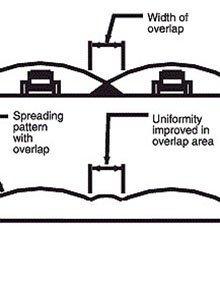
Measuring Manure Spreader Uniformity
Reviewed
Learn how to test and adjust manure spreader overlap to ensure even nutrient application and improve crop growth across your fields.
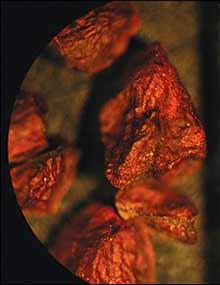
Missouri Weed Seeds, Page 32
Reviewed
Primrose is a common member of Onagraceae (Evening primrose family) with approximately 14 different species present in Missouri.
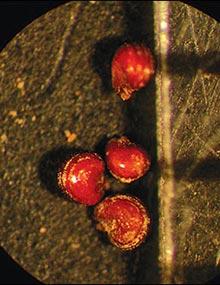
Missouri Weed Seeds, Page 03
Reviewed
Other than carpetweed, only two species of plants in the family Aizoaceae are known to occur in relatively isolated locations in Missouri
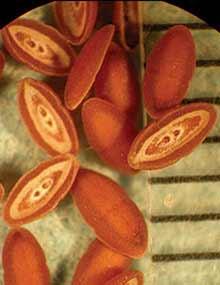
Missouri Weed Seeds, Page 35
Reviewed
Plantaginaceae (Plantain family), known collectively as plantains, has about 11 species in the state.
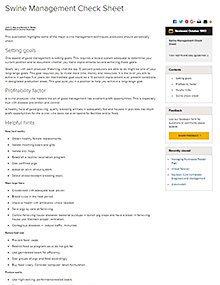
Swine Management Check Sheet
Reviewed
This publication provides a comprehensive checklist for swine producers, covering essential management practices from breeding to farrowing.
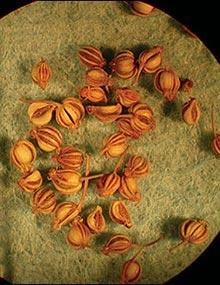
Missouri Weed Seeds, Page 06
Reviewed
Apiaceae (Carron family), also known as the parsley family, is a large family that includes several herbal plants, such as caraway, dill and fennel. It also contains several toxic plants, such as poison hemlock and water hemlock.
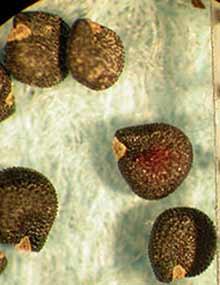
Missouri Weed Seeds, Page 38
Reviewed
Of 20 genera known within Portulacaceae (Purslane famiy), there are only three present in the state. Purslane is the most common among them.
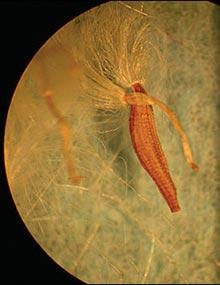
Missouri Weed Seeds, Page 09
Reviewed
Explore the diverse milkweed species in Missouri, featuring detailed seed images with millimeter rulers for accurate size reference.
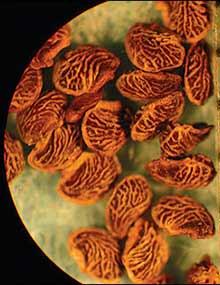
Missouri Weed Seeds, Page 41
Reviewed
Many of the members of Rosaceae (Rose family) are commonly grown as cultivated plants, including rose, apple, pear and strawberry. A notorious member, multiflora rose, is one of the state’s noxious weeds.
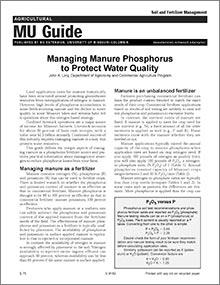
Managing Manure Phosphorus to Protect Water Quality
Reviewed
This guide offers strategies to manage manure phosphorus, reducing runoff and protecting Missouri's water resources.
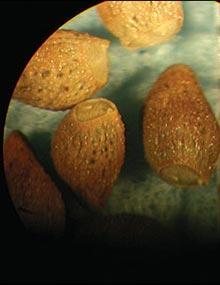
Missouri Weed Seeds, Page 12
Reviewed
Boraginaceae (Borage family) also includes several nuisance plants known as “beggar’s lice” because their fruits readily attach to clothing and other articles.
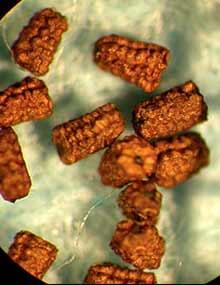
Missouri Weed Seeds, Page 44
Reviewed
Of the nearly 280 genera of Scrophulariaceae (Figwort family), at least 25 are known to be in Missouri. The genera that contain mullein and speedwell are among the most common.
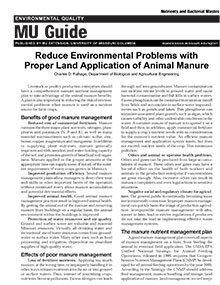
Reduce Environmental Problems With Proper Land Application of Animal Manure
Reviewed
Learn how to manage livestock manure to enhance soil health, reduce fertilizer costs, and protect water quality through proper application practices.
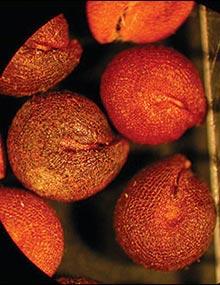
Missouri Weed Seeds, Page 15
Reviewed
Only a few members of Capparidaceae (Caper family), such as spider flower, occur in Missouri.
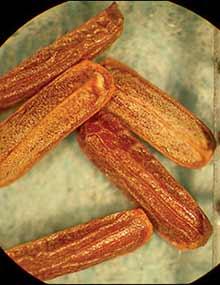
Missouri Weed Seeds, Page 47
Reviewed
Detailed information on the Verbenaceae family, including images of blue and hoary vervain seeds with millimeter scale references.

Gases and Odors From Swine Wastes
Reviewed
Gases from swine waste, such as ammonia and hydrogen sulfide, can impact air quality and health in confinement facilities.